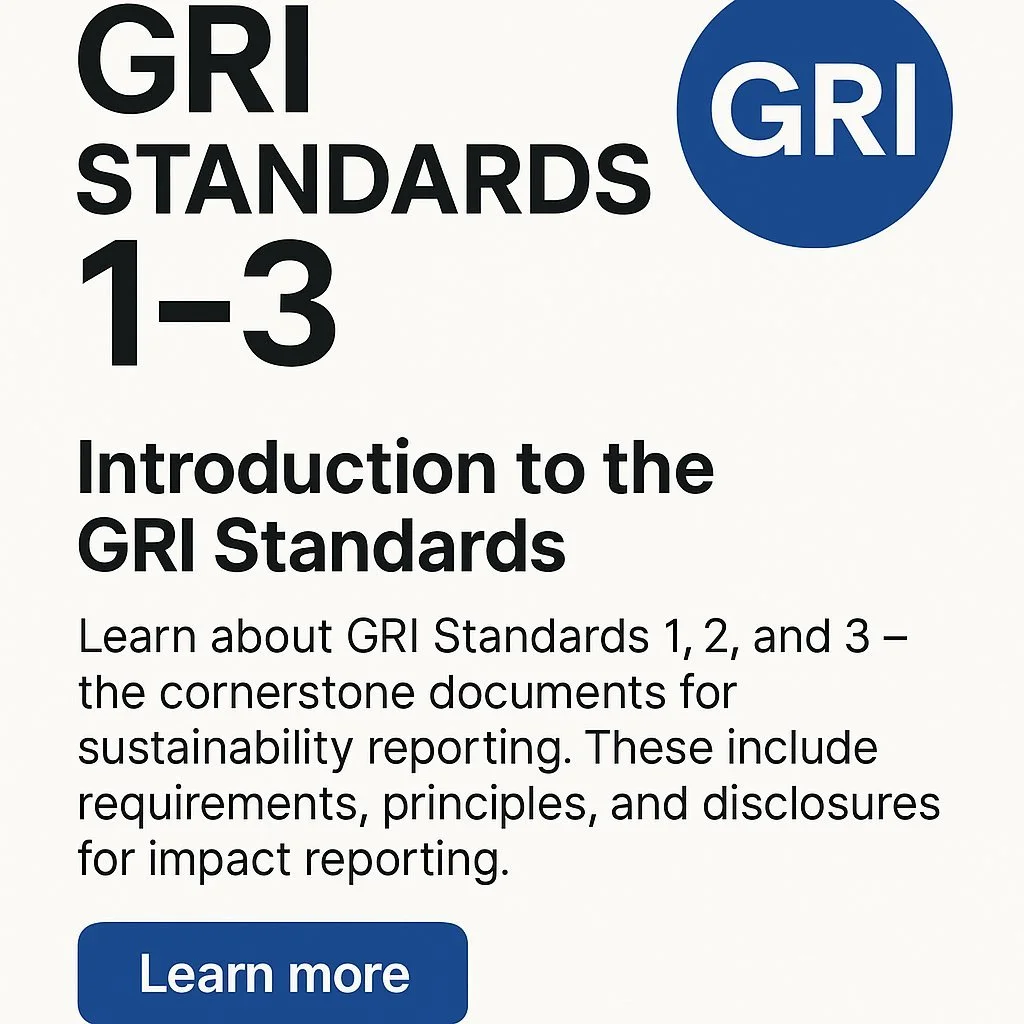GRI Standards 1-3: The Foundation of Transparent ESG Reporting
Understanding the GRI (Global Reporting Initiative) Standards is essential for any organization seeking to report its environmental, social, and governance (ESG) impacts with clarity and credibility. GRI Standards 1-3 provide the core structure for sustainability reporting, forming a globally accepted framework that enables comparability, transparency, and accountability.
What Are GRI Standards 1-3?
The GRI Standards are divided into three series:
GRI 1: Foundation 2021 — Defines key concepts, principles, and reporting requirements.
GRI 2: General Disclosures 2021 — Specifies disclosures about the organization and its reporting practices.
GRI 3: Material Topics 2021 — Guides the process of determining and reporting on material sustainability topics.
Together, these form the backbone of any GRI-aligned report.
Why Use GRI Standards 1-3?
Aligning with GRI Standards 1-3 enables your organization to:
Enhance stakeholder trust through standardized disclosures
Identify and communicate material impacts clearly
Improve ESG risk awareness and transparency
Demonstrate alignment with global expectations and frameworks (e.g., UN SDGs, ISSB)
Key Components
GRI 1: Foundation
Principles for Reporting: Accuracy, balance, clarity, comparability, completeness, sustainability context, timeliness, and verifiability
Requirements: Use of applicable GRI Standards, reporting on all material topics, preparing a content index, and a declaration of GRI use
GRI 2: General Disclosures
Organizational Information: Name, activities, size, structure
Governance & Ethics: Board structure, decision-making, code of conduct
Stakeholder Engagement: Processes for engaging stakeholders and incorporating feedback
GRI 3: Material Topics
Identification: Define actual and potential impacts on the economy, environment, and people
Prioritization: Engage stakeholders to determine significance
Reporting: Disclose how each material topic is managed
Implementation Tips
Start with a gap analysis comparing current disclosures to GRI 1-3
Engage internal and external stakeholders early in the process
Align with broader reporting standards (e.g., SASB, TCFD) where possible
Use the GRI Content Index to improve transparency
Get Expert Help
Wintersmith Advisory supports organizations in implementing GRI Standards 1-3 with confidence. Whether you're new to ESG or improving an existing framework, our consultants can guide you through:
Materiality assessments
Gap analysis and roadmap development
Report drafting and GRI content index creation
Contact us today to start your GRI-aligned ESG journey.
Contact us.
info@wintersmithadvisory.com
(801) 558-3928

